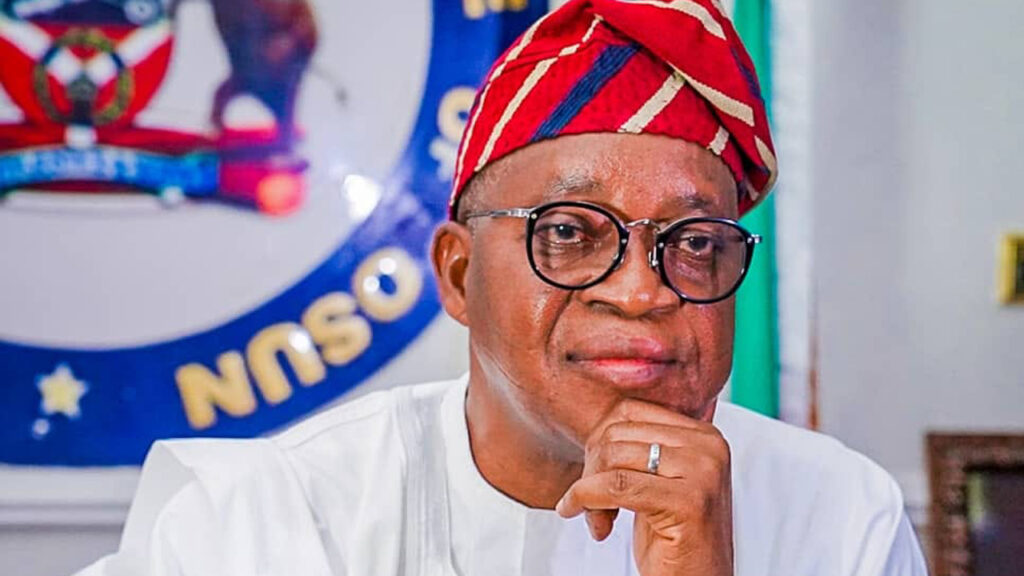- Minister Adegboyega Oyetola reaffirms the Federal Government’s commitment to improving Nigeria’s port infrastructure to enhance maritime security and economic growth
- Oyetola highlights the need for public-private partnerships to address challenges in the maritime sector, including infrastructure decay and high shipping costs
The Minister of Marine and Blue Economy, Adegboyega Oyetola, has reaffirmed the Federal Government’s commitment to enhancing port infrastructure in Nigeria. He made this statement during the Second Ehingbeti Blue Economy Project and Book Launch held at the Oriental Hotel in Lekki, Lagos.
The book, titled The Renaissance of Ehingbeti in the Lagos Blue Economy, was also launched at the event. Oyetola, represented by the Director General of the Nigerian Maritime Administration and Safety Agency (NIMASA), Dr. Dayo Mobereola, emphasized that improving port infrastructure is a top priority for his ministry.
“As a Ministry of Marine and Blue Economy, we are going to be focused on enhancing port infrastructure, developing a robust marine and blue economy policy and implementation plan,” Oyetola stated. “We will strengthen regulatory frameworks to spur growth in the maritime sector. Illegal, unregulated, and unreported fishing will become a thing of the past.”
Oyetola further highlighted the ministry’s focus on improving Nigeria’s maritime security capabilities, promoting sustainable blue economy investments through public-private partnerships (PPP), building synergies with stakeholders, and creating job opportunities in the maritime sector.
However, he acknowledged that the maritime domain faces several challenges, including infrastructure decay, high shipping costs, environmental degradation, and unsustainable practices such as overfishing and unfair trade. He stressed the need to address these issues to promote growth, social inclusion, and environmental sustainability.
“The blue economy encompasses various maritime activities, including shipping, tourism, fishing, maritime transport, sea exploration, marine biotechnology, and more,” Oyetola explained. He added that the Ehingbeti initiative demonstrates collective efforts to unlock Nigeria’s coastal and marine resources’ full potential.
Oyetola noted that Lagos plays a crucial role in Nigeria’s economic development and that the blue economy offers a shift toward a holistic approach that balances environmental, social, and economic impacts. He called for collaboration among key stakeholders to improve port operations, enhance maritime safety, and ensure sustainable management of maritime resources.
The program convener and President of the Ocean Ambassador Foundation, Mrs. Violet Williams, explained that the book launch aims to provide a blueprint for implementing and sustaining the blue economy in Nigeria. “By the time policymakers go through this book, they will have all it takes for sustainability and the new economy in Nigeria,” she said.
The event also included award presentations to top players in the marine industry, and notable attendees included the Olu of Iwa and Apapa Kingdom, Oba Maroof Amodu-Tijani, and Prince Tajudeen Olusi.
